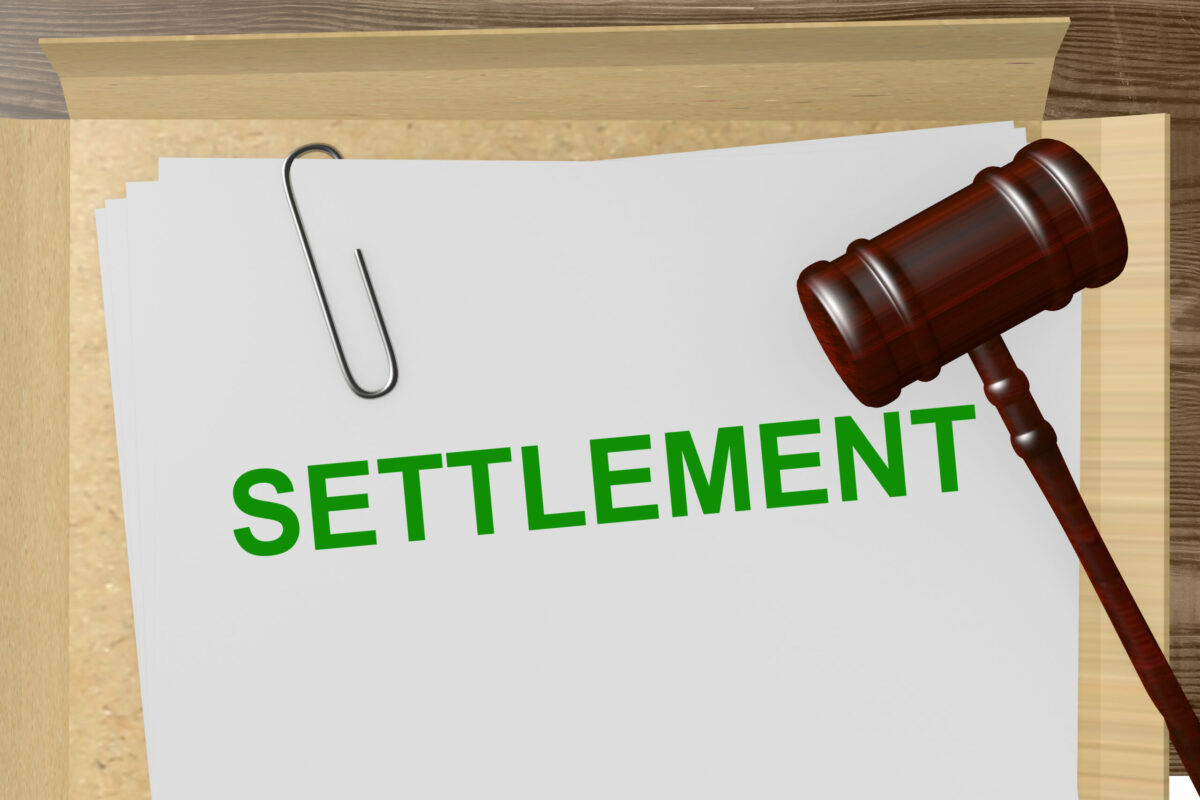“Caltech’s recent [settlement talks] strengthen the argument that Caltech could see similar positive outcomes from its cases against HP, Dell and Microsoft.”

Pending Caltech Cases Include Same Patents-in-Suit as Recently Settled Litigation
On August 8, Caltech and South Korean electronics conglomerate Samsung entered a joint notice of settlement in the Eastern District of Texas. While the filing indicates that both sides have not yet finalized a settlement agreement, it’s a strong indication that the infringement trial scheduled for September will not be conducted by the Eastern Texas court. Two days later, on August 10, civil minutes from a telephonic conference were entered in Caltech’s lawsuit against Apple and Broadcom in the Central District of California, indicating that a potential settlement was reached in that case, which also involves Caltech’s patented wireless technologies.
A review of Caltech’s U.S. district court filings show that there is significant overlap among the patents asserted in the Samsung and Apple cases and those asserted in pending lawsuits against several other major tech firms. Dell, HP and Microsoft have each been named as defendants in complaints filed by Caltech in the Western District of Texas. As in the Samsung and Apple cases, Caltech asserted the following patents each titled Serial Concatenation of Interleaved Convolutional Codes Forming Turbo-Like Codes: U.S. Patent No. 7116710; U.S. Patent No. 7421032; U.S. Patent No. 7916781; and U.S. Patent No. 8284833.
Generally, the patents-in-suit cover signal encoding methods capable of increasing data rates that can be handled by a channel. In Caltech’s series of district court complaints, these patents are identified as introducing a new class of error correction codes called “irregular repeat and accumulate” (IRA) codes. The use of IRA codes allow decoders to facilitate message recovery or information bits even when codewords are corrupted by noise during transmission, despite the use of simplified encoding and decoding circuitry. Improvements to several IEEE Wi-Fi standards included high throughput modes implementing error correction codes covered by Caltech’s patents, according to the university’s complaints.
Wi-Fi-Enabled Devices Implementing Improved IEEE Standards Likely Infringe
As in Caltech’s lawsuits against Samsung and Apple, the complaints in the university’s other pending patent suits target accused products that comply with IEEE’s 802.11n, 802.11ac or 802.11ax standards. While the 802.11n standard introduced the high throughput mode implementing the allegedly infringing IRA and low-density parity check (LDPC) encoder and decoder technology, that same encoding technology was also specified in the 802.11ac standard finalized in 2013 for Wi-Fi 5, and the 802.11ax standard currently being developed for Wi-Fi 6. Caltech’s complaints argue that implementation of any of these standards infringe the asserted patents by performing substantially fewer computations and being otherwise more efficient and cost-effective than noninfringing standards.
Caltech’s infringement allegations have targeted a wide swath of wireless-enabled devices made by each of the tech companies sued in U.S. district court, many of which share the same WiFi functionalities as Samsung’s accused mobile phones, tablets, computers and Wi-Fi enabled devices. The university’s first amended complaint against HP identified as accused products the company’s commercial PCs, including HP ProBook and HP EliteBook lines of notebooks as well as HP Pro and HP Elite business desktops, consumer PCs including HP Spectre and HP Chromebook, and wireless printers including the LaserJet Pro and OfficeJet Pro lines. Caltech’s first amended complaint against Dell alleged infringement through laptops, desktops, tablets and workstations under several product lines including XPS, Inspiron and Latitude. Caltech’s first amended complaint against Microsoft targets that company’s Surface and Xbox product lines.
Each of Caltech’s complaints, including the complaint filed against Samsung, argued the strength of the university’s asserted patent rights in light of the related litigation against Apple and Broadcom. In those proceedings, the ‘710, ‘032, ‘781 and ‘833 patents each survived several patentability challenges raised in U.S. district court and the Patent Trial and Appeal Board (PTAB) while supporting a $1.1 billion damages award for Apple and Broadcom’s infringement. Since Caltech’s more recent infringement cases, the Federal Circuit had ordered a new trial on damages but affirmed findings of no invalidity of the asserted patents. Last June, the U.S. Supreme Court also denied a petition for writ of certiorari filed by Apple that had sought to limit the Federal Circuit’s ruling on inter partes review (IPR) estoppel. Caltech’s recent Samsung settlement, and the potential settlement with Apple and Broadcom, strengthen the argument that Caltech could see similar positive outcomes from its cases against HP, Dell and Microsoft.
Image Source: Deposit Photos
Author: Premium_shots
Image ID: 85264486





